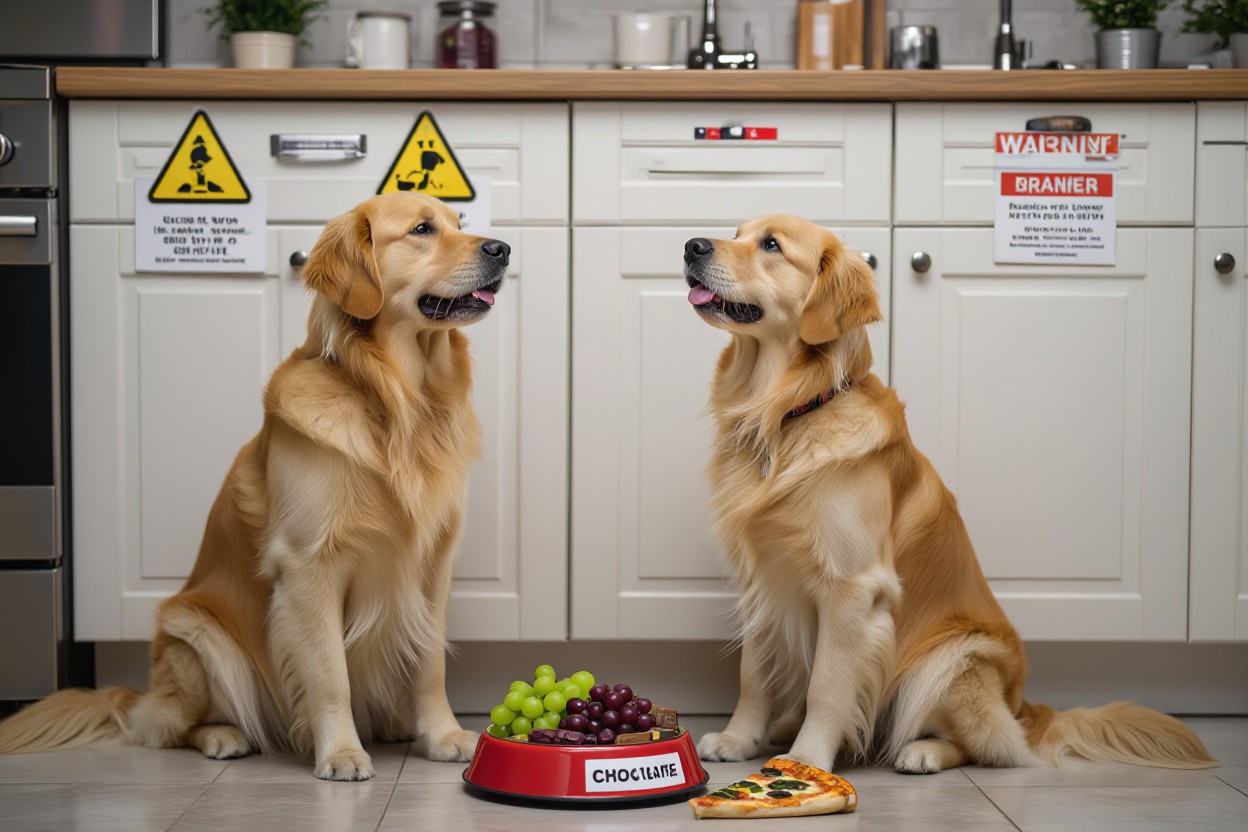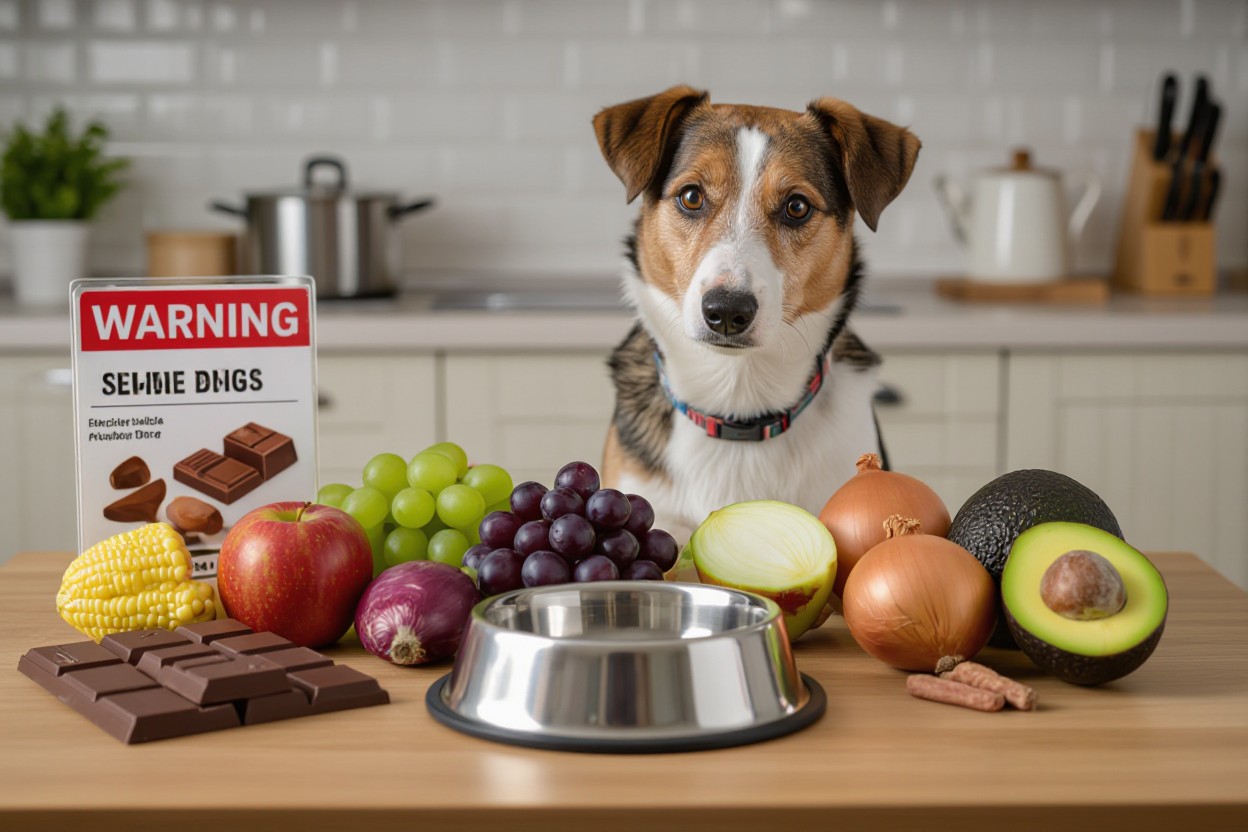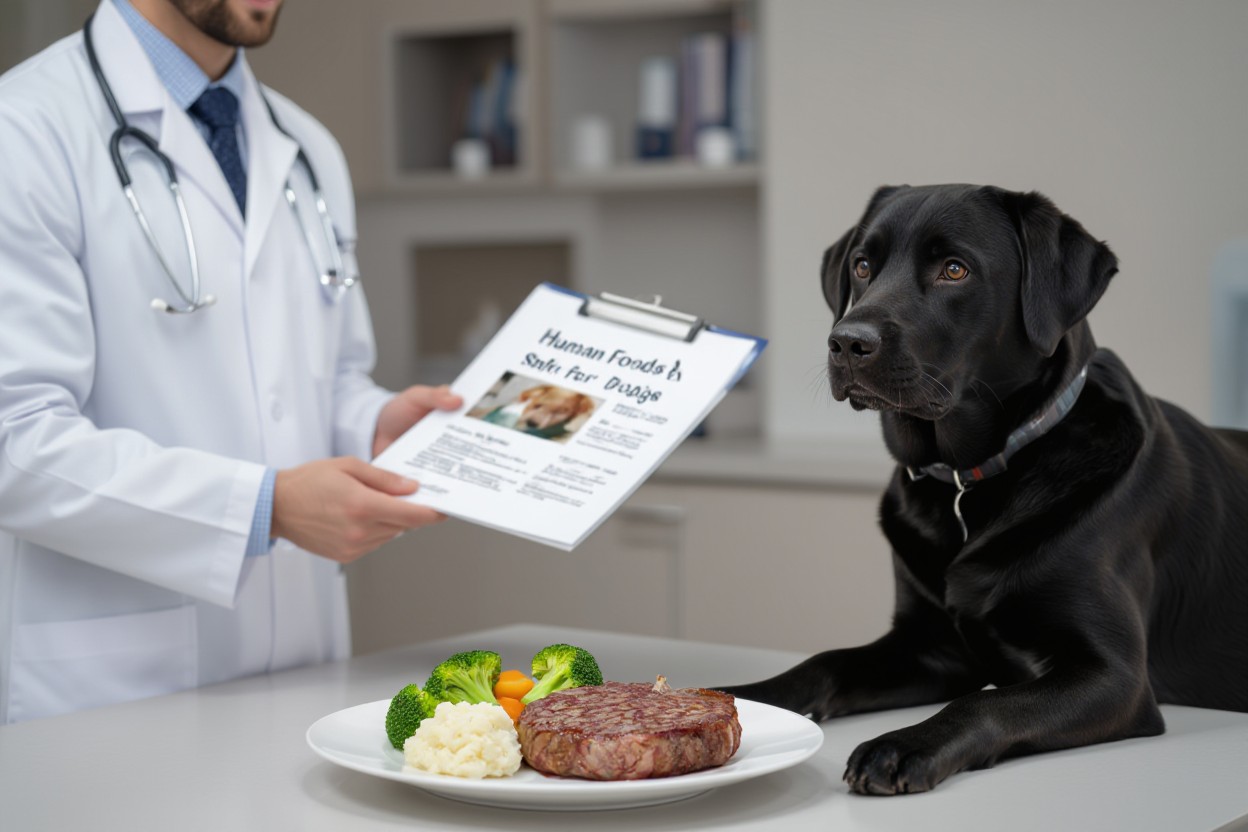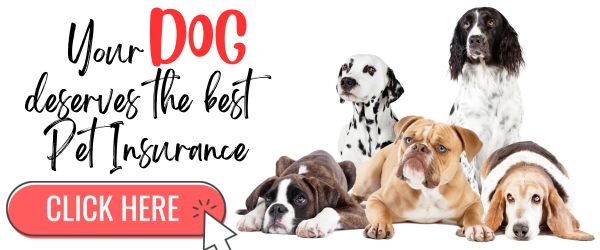You might wonder whether sharing your meals with your dog is harmless or risky. Understanding which human foods are safe for dogs can help you make informed decisions about their diet and avoid potential health issues. While some treats from your plate are perfectly fine, others can be harmful or even toxic. To guide you better, check out this detailed resource on Which people foods are safe for dogs? so you can confidently choose snacks that support your dog’s well-being.

Key Takeaways:
- Many human foods can be harmful to dogs, including chocolate, grapes, onions, and certain artificial sweeteners; these should be avoided to prevent health issues.
- Some human foods like plain cooked chicken, carrots, and rice can be safe for dogs in moderation, but it’s important to consult with a veterinarian before introducing any new foods.
- Always ensure that foods given to dogs are free from harmful ingredients such as seasoning, salt, and sauces, which can upset their digestive system.
The Canine Digestive System: What You Need to Know
Your dog’s digestive system differs significantly from yours, affecting how they process various foods. Dogs have a shorter gastrointestinal tract than humans, designed to quickly break down proteins and fats. Their stomach acidity is higher, aiding in digesting raw meat and killing harmful bacteria. Unlike humans, dogs produce fewer enzymes for breaking down carbohydrates, which means certain human foods high in starch or sugar may not be properly digested and can lead to gastrointestinal upset.
Comparing Human and Dog Digestion
| Human Digestion | Dog Digestion |
|---|---|
| Longer digestive tract (~30 feet) suited for breaking down complex carbohydrates and fibers | Shorter digestive tract (~10 feet), optimized for digesting proteins and fats |
| Lower stomach acidity (pH ~1.5-3), designed for gradual digestion | Higher stomach acidity (pH ~1), which helps with rapid protein breakdown and pathogen defense |
| High production of amylase enzyme for carbohydrate breakdown starting in the saliva | Low salivary amylase; carb digestion primarily occurs in the small intestine |
| Ability to digest a wide variety of plants and grains | Limited ability to digest plant-based foods; canine diet is naturally more carnivorous |
Potential Issues Arising from Dietary Differences
Feeding your dog human food with high fats, sugars, or certain spices can trigger digestive upset such as vomiting, diarrhea, or pancreatitis. Foods like onions, grapes, and chocolate are toxic, while others can disrupt gut flora or cause obstructions. Their limited enzyme production for carbs means sudden carbohydrate loads may cause gas or bloating. High-fat foods increase risk of inflammation and obesity-related problems. Being aware of these differences helps you avoid foods that can harm your dog’s well-being.
Because dogs lack the ability to detoxify some compounds present in common human foods, even small amounts can lead to severe health consequences. For instance, the toxin thiosulfate in onions damages red blood cells, causing anemia. Additionally, their faster digestion leaves less time for absorbing nutrients from unfamiliar foods, which may result in chronic digestive issues or nutrient deficiencies. Monitoring dietary intake closely and consulting your vet before introducing novel human foods ensures your dog’s digestive health stays stable.

Foods That Can Harm Your Dog: A Comprehensive List
Several human foods pose serious health risks to dogs, often due to toxins or ingredients their digestive systems can’t handle. Items like chocolate, grapes, xylitol, onions, and alcohol are well-documented culprits that can trigger symptoms ranging from mild upset to life-threatening conditions. You need to be vigilant, especially with seemingly innocuous foods that might contain harmful additives or concentrated compounds. Knowing these foods lets you avoid accidental exposure and choose safer alternatives to share with your canine companion.
Common Ones to Avoid: Chocolate, Grapes, and More
Chocolate contains theobromine, a compound toxic to dogs, potentially causing seizures or heart issues even with small amounts. Grapes and raisins can lead to severe kidney failure, though the exact toxic agent remains unknown. Onions, garlic, and leeks contain thiosulfate, which damages red blood cells, while macadamia nuts induce weakness and tremors. Storing these foods securely and educating family members helps prevent unintended ingestion and emergency vet visits.
Hidden Dangers in Everyday Ingredients
Many everyday kitchen ingredients hide dangers for dogs; xylitol, a common sugar substitute in gum and baked goods, can cause dangerous insulin spikes and liver failure. Raw yeast dough expands in the stomach, triggering painful bloating and alcohol poisoning from fermentation. Even simple foods like avocado contain persin, toxic to certain dog breeds in large quantities. Carefully scrutinize labels and avoid sharing foods with these hidden hazards to safeguard your dog’s wellbeing.
Xylitol is increasingly found in sugar-free products, such as peanut butter brands marketed as dog-friendly, so vigilance is necessary when feeding treats. Raw yeast dough’s rapid expansion can cause gastric dilatation-volvulus (GDV), a life-threatening emergency commonly associated with deep-chested breeds. Avocado’s persin toxicity varies; while your dog might tolerate small amounts, breeds like the American Staffordshire Terrier are more susceptible. By recognizing these hidden ingredients in everyday items, you better protect your dog from unexpected harm.
Safe Human Foods That Dogs Can Enjoy
Several human foods provide healthy snacks or supplements for your dog without risking toxicity. Plain cooked lean meats like chicken or turkey, small servings of plain rice or pasta, and certain vegetables such as carrots or green beans make excellent treats. Fruits like apple slices (seedless), blueberries, and watermelon in moderation are usually well tolerated. These options not only satisfy your dog’s curiosity but also contribute beneficial nutrients without the harmful additives or excessive fat found in many processed foods.
Nutritional Benefits of Certain Foods
Foods like pumpkin are rich in fiber and vitamins A, C, and E, aiding digestion and supporting the immune system. Salmon delivers omega-3 fatty acids that promote a shiny coat and joint health. Carrots provide beta-carotene and antioxidants enhancing vision and cellular health. Incorporating such foods thoughtfully can complement the nutrients in your dog’s regular diet, potentially improving overall vitality and wellbeing.
Preparing Human Foods for Canine Consumption
Proper preparation drastically reduces risks when offering human foods to your dog. Avoid seasoning, oils, spices, and additives; cook meats thoroughly to eliminate bacteria; and cut fruits or vegetables into bite-sized portions to prevent choking. Additionally, peeling skins and removing seeds can prevent digestive upset or toxicity. Serving in controlled portions keeps calorie intake balanced, maintaining your dog’s healthy weight.
Taking extra care during preparation means you’re minimizing hazards while enriching your dog’s diet. For instance, boiling or steaming vegetables rather than frying keeps them nutrient-friendly and digestible. When offering fruits like apples, ensure all seeds and cores are removed since they contain cyanogenic compounds. Meat should always be cooked without salt or garlic, as these seasonings can be harmful. By attentively preparing these foods, you can safely diversify your dog’s menu and introduce new flavors without compromising their health.

Veterinary Insights: What Professionals Recommend
Veterinarians generally advise caution when feeding your dog human food due to varying digestive tolerances and health risks. While certain plain, cooked vegetables or lean meats can be safe, many human foods contain additives or seasonings that might harm your pet. Professionals encourage offering dog-formulated diets or vet-approved treats instead. For detailed discussions and community experiences, see this thread on Can a dog eat human food?.
Common Misconceptions About Feeding Dogs Human Food
Many believe giving dogs scraps or indulgent treats helps build your bond, yet some human foods thought safe actually upset digestion or cause toxicity over time. For example, bread dough can expand in a dog’s stomach, leading to bloating or worse. Also, foods like grapes and onions, mistakenly considered harmless by some, are toxic. Separating fact from myth ensures you avoid unintended health consequences while caring for your pet.
When to Consult a Vet About Your Dog’s Diet
If your dog shows symptoms like vomiting, diarrhea, lethargy, or changes in appetite after eating human food, consult your vet immediately. Nutritional imbalances due to inappropriate foods can cause long-term health issues, so prompt professional guidance helps tailor a safe diet. Also, if you’re considering a homemade or mixed diet, discussing it with a vet allows for nutritionally balanced planning specific to your dog’s breed, age, and health status.
Extended guidance includes assessing underlying health conditions that might be aggravated by certain foods. Veterinarians may recommend blood tests or specialized diets for dogs with allergies, kidney disease, or pancreatitis. Ensuring adequate nutrient intake without excess fats, sugars, or harmful substances is key, and ongoing monitoring by a professional aids early detection of dietary problems before they escalate.
The Psychological Aspect: Dogs and Our Food Culture
Your dog’s fascination with your meals often goes beyond hunger; it taps into deep-rooted social and psychological dynamics. Sharing food with your dog reinforces bonding, yet it can also encourage begging and food guarding behaviors that disrupt household harmony. Understanding these patterns helps you manage expectations and interactions. Studies reveal how the human-wolf coevolution shaped dogs to respond strongly to food-sharing cues, making you their trusted resource. For more insights on why feeding dogs human food can be harmful behaviorally and physically, see Why Dogs Should NOT Eat ‘People Food’.
The Impact of Sharing Food on Dog Behavior
When you share your meals, your dog quickly learns to associate your presence with treats, often leading to persistent begging at the table. This behavior can escalate into food aggression or anxiety around meal times, causing stress for both you and your pet. Consistent, controlled feeding routines teach your dog boundaries, helping avoid unwanted habits and ensuring mealtimes stay peaceful and respectful within your home.
Balancing Treats and Health in Dog Training
Using treats effectively requires more than just rewards; it involves balancing indulgence with nutritional needs. Overindulgence in high-calorie or inappropriate human snacks can cause weight gain, digestive issues, and even nutrient imbalances that impair training progress. Selecting low-calorie, dog-safe treats in measured portions supports your dog’s motivation without compromising their health, allowing training sessions to remain effective and enjoyable.
Incorporating a variety of healthy treats, like small pieces of cooked chicken or carrots, offers positive reinforcement while reducing health risks. Monitoring treat intake as about 10% or less of your dog’s daily calories maintains proper weight. Additionally, rotating treats prevents monotony and maintains your dog’s interest during training. Combining this approach with consistent commands reinforces desired behaviors without creating dependency on food rewards alone, ensuring your dog responds reliably in diverse situations.
To wrap up
Hence, when considering if human food is safe for your dog, you should always evaluate ingredients carefully and avoid items known to be toxic, like chocolate, onions, and certain artificial sweeteners. While some fruits, vegetables, and lean meats can be healthy treats in moderation, you must ensure they are prepared safely and without harmful additives. Consulting your veterinarian is the best way to determine which human foods can complement your dog’s diet without risking their health. By staying informed and cautious, you protect your furry friend’s well-being while occasionally sharing safe, tasty treats.
Q: Can dogs safely eat most types of human food?
A: While some human foods are safe and even beneficial for dogs in moderation, not all human foods are appropriate. Certain items like cooked lean meats, plain vegetables, and some fruits can be healthy additions to a dog’s diet. However, many human foods contain ingredients or seasonings that can be harmful or toxic, so it is imperative to check each food before offering it to your pet.
Q: What common human foods should be avoided when feeding dogs?
A: Dogs should not consume foods containing chocolate, grapes, raisins, onions, garlic, alcohol, caffeine, or foods with artificial sweeteners such as xylitol. These substances can cause serious health problems including poisoning, digestive upset, or even organ failure. Processed and seasoned foods, especially those high in salt or fat, should also be avoided to maintain your dog’s health.
Q: How can I safely introduce human food to my dog’s diet?
A: Introduce small amounts of safe human foods gradually to monitor your dog’s reaction. Begin with plain, cooked meats or certain vegetables and observe for any signs of digestive trouble or allergies. It’s best to consult your veterinarian before making any significant changes to your pet’s diet to ensure that the new foods complement their nutritional needs without causing harm.
 wagwagtail "only love can make your dog wag her tail"
wagwagtail "only love can make your dog wag her tail"
